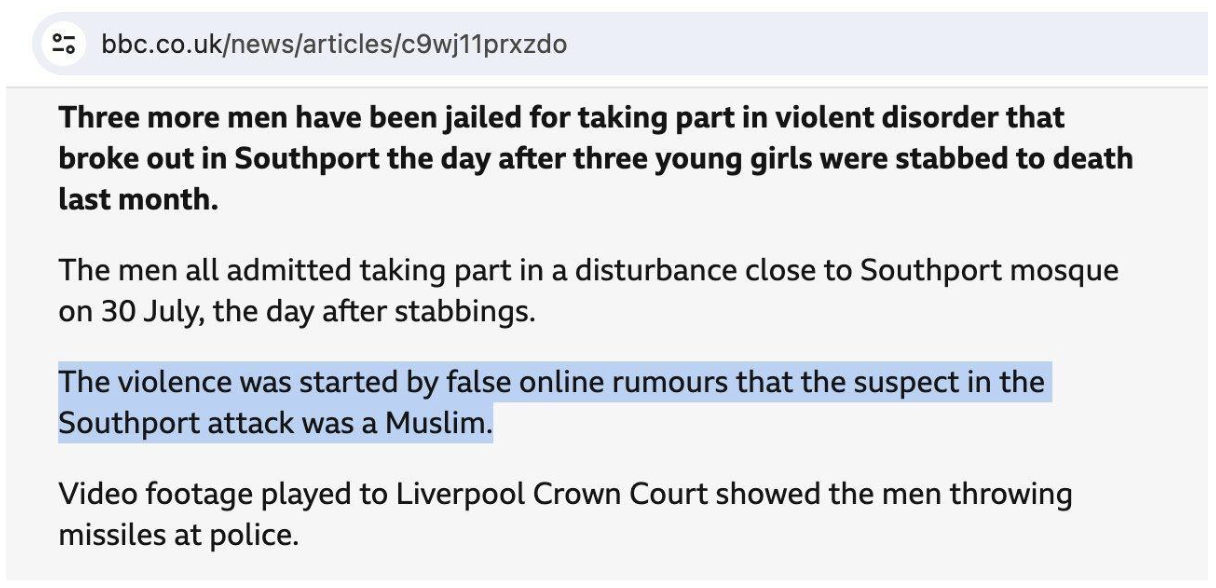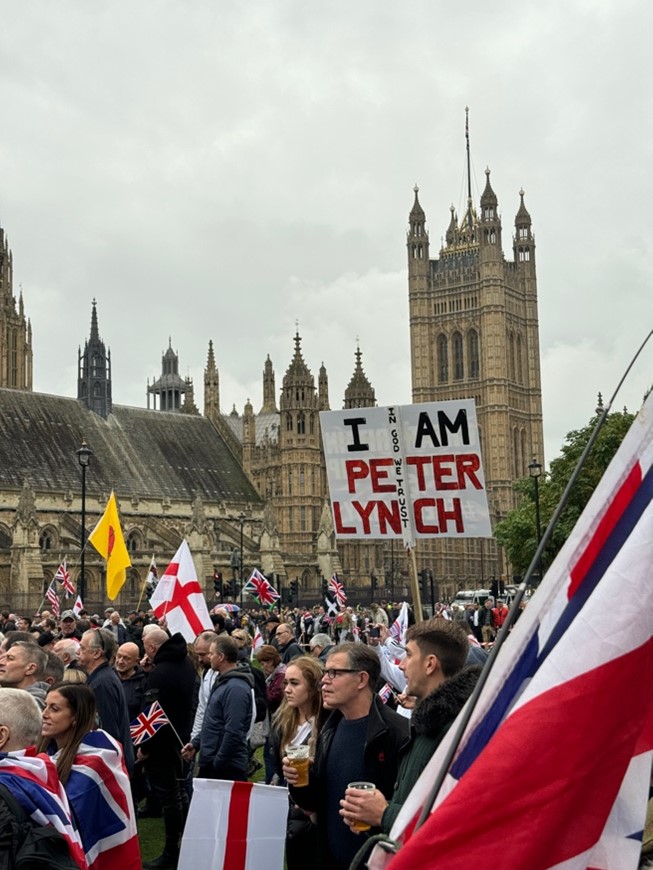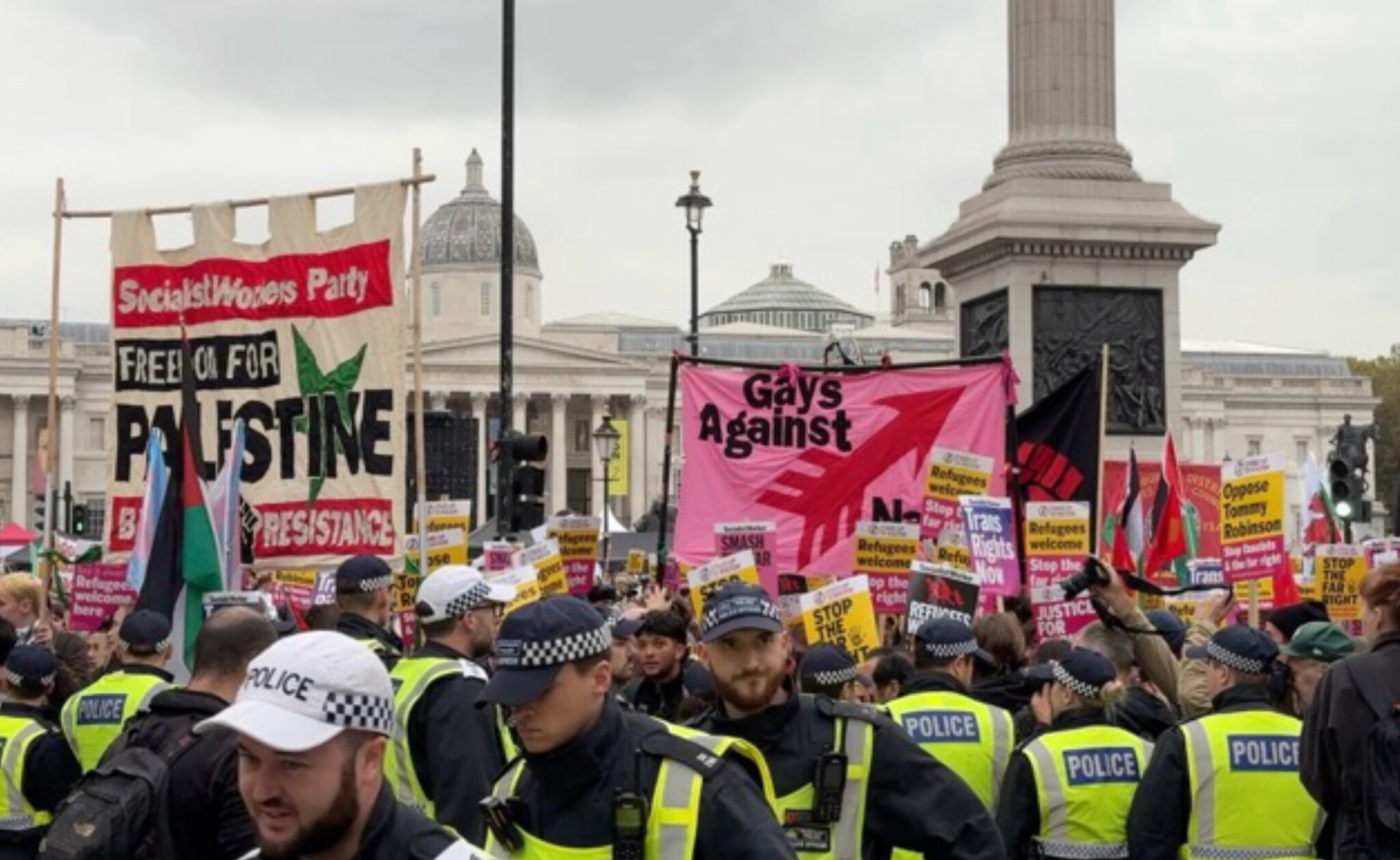The motivations of the man who entered a Taylor Swift-themed Birthday party to attack the young girls in attendance have now been made public. Unsurprisingly, it was motivated by Islamism. Axel Rudakubana is facing charges of making a biological weapon and possessing a jihadi terror manual. After months of accusations of prejudicial Islamophobia, there are questions to which the British public want answers.
How much did the authorities know about the motivations of the attacker? And when?
Following the riots in the wake of the attack, Ayaan carefully noted in her piece Two-Tier Keir that the police had not yet released any information about the motive, and therefore did not state anything concrete about the motivations of the attacker which were kept hidden from us by the authorities until today.
But many had their strong suspicions. Understandably so. Pattern recognition is a powerful function of the human brain.
It is not the first time that this kind of horror has been unleashed on British streets in the name of radical Islam. It is not even the first time that a group of innocent young girls have been deliberately targeted. In Manchester, on 22 May 2017, 22 victims were blown up and 1,017 injured at a performance of their idol, Ariana Grande. This Summer, it was young girls at a birthday party enjoying a taste of this year’s global Taylor Swift mania.
The accounts of the attack are horrific. 11 young girls were savaged by Axel Rudakubana, with three of them killed, two of them at the scene and one dying later from her injuries in hospital. Witnesses, describing the event to the BBC, recounted that it was “like a scene from a horror movie” with sinister screaming and “several young children bleeding in the road”.

Six-year-old Bebe King. Seven-year-old Elsie Dot Stancombe. Nine-year-old Alice Dasilva Aguiar.
This is not hysteria. It is the horror wrought on our society by our inept authorities. Authorities which were intent on drip-feeding information about the attacker as tensions in response to the attack began to brew. These finally boiled over into the outrage and violence which were seen in pockets across the country. As Dominic Cummings likes to remind his readers, in the midst of all these failings, “the system is working as intended”.
Are the British public now allowed to ask the questions which they were harangued by the BBC for even hinting at in the aftermath of the attack? Axel Rudakubana was from a Rwandan Christian family. Where was he radicalised? And how? Which mosque, if any, did he attend?

One BBC article blamed the subsequent riots on “untrue claims that the attacker was a Muslim” while another suggested that his being a Muslim was a “false online rumour”. Disturbances erupted outside of the Southport Mosque with a number of protestors arrested for violence and incitement, leading Sir Keir Starmer to condemn Islamophobia and far-right thuggery in his first speech after the attack.
The riots were partially fuelled by the feeling that facts regarding the attack and the attacker’s identity were being kept from the public. Usually, the authorities favour getting ahead of the issue and stating their suspicions.
In the immediate aftermath of the Mannheim attack in Germany, for example, the German authorities were open about their suspicions while being honest about the initial limitations of their investigations. On 31 May, Afghan refugee Sulemain Ataee stabbed six people, killing a police officer. On that same day, investigators shared openly that he probably acted out of Islamist motives. There was widespread condemnation, but there was no rioting.
If the authorities had been more open with the public in the aftermath of the Southport attack, one has to wonder if the riots would have played out as they did, or whether the more sober questions about what lead him to commit the crime would have dampened the fury and channelled it more productively.
I observed the “Unite the Kingdom” protest on Saturday, which was demonstrating peacefully against the jailing of Tommy Robinson, an outspoken critic of Islam in England. I also visited the march for Chris Kaba, the man who was shot dead by the police, which was happening round the corner. I happened to be in Westminster and was walking through both to meet a friend.
At the march for Tommy Robinson there were flags of all colours and causes joining the sea of Union Jacks and St George’s crosses. There were slogans against censorship, a general sense that the Prime Minister was not governing for everyone in Britain by ignoring the concerns of the English working class, and that he was listening and speaking to “communities” but had nothing to say to those people who feel threatened by the changing demographics in their country and what they perceive as the accompanying threat of radical Islam.
One poignant flag read “I am Peter Lynch”. Others merely flew a picture of his face. Mr Lynch was the 61-year-old Grandfather who was arrested for rioting outside a hotel in Rotherham, screaming “you are protecting people who are killing our kids and raping them” at the police. He was sentenced to two years in jail by a judge who held that, although he did not attack the police, he “encouraged by [his] conduct others to behave violently” as part of the mob. On 19th October, he took his own life while in prison.

As many have said before, and I will reiterate, it should go without saying that people should not riot. The people inside the hotel around which the mob formed were genuinely terrified for their safety. If you want a high-trust society and to enjoy the full protection of the laws of the land, you have a duty to obey them in turn. But I cannot help feeling that this may have all been avoidable if the authorities had not prevaricated on sharing what they knew with the public. If the public cannot reliably get their information from sources that should be credible – most importantly the Government and its agencies – or from the BBC and other establishment media sources, then they will start looking for it in places that are less reliable.
Enjoy independent, ad-free journalism - delivered to your inbox each week
Tommy Robinson was jailed yesterday for 18 months for contempt of court after repeating libelous claims about a Syrian refugee. He had claimed the schoolboy had attacked young girls. Many of Robinsons followers look up to him as a figure who, in their eyes, stands up to power and speaks truth to the public. In this case, he was wrong.
Tommy Robinson is a folk hero to these people. To the counter-protestors last Saturday, he is fascism incarnate. But to the Unite the Kingdom protestors he is a man who exhibits remarkable courage, risking his safety and liberty to pierce through the opaque veil which has been draped by the authorities over the truth.

And for this, they can forgive him his mistakes. For every dangerous slander about an innocent schoolboy, they can conjure the hundreds of times he has spoken up for their communities and demanded answers about the scandal of grooming gangs in the nation’s left-behind towns.
But the point is that the British authorities should not be putting the British public in the position where they have to look to fringe figures who seemingly vacillate between courage and foolishness.
For many in Britain, the social contract feels broken. Across the country, swathes of disaffected people believe that the state has neglected its primary duties – to keep law and order, and to hand down justice evenly. The channels of communication between ordinary citizens, the authorities, and the press have become antagonistic.
In the wake of the revelations today, the government should be reminded that there are people in Britian who feel unheard and unrepresented. These are dangerous sentiments which the Government ought seriously to address if it wants get ahead of any future disorder.




Comments (0)
Only supporting or founding members can comment on our articles.